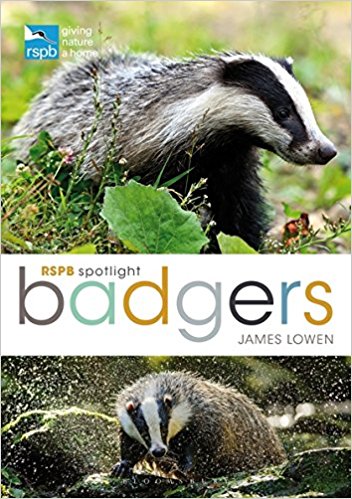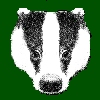 |
Down on the Farm -
Bovines might be source of TB

Private Eye - 20th September
2002
Civil servants at DEFRA, the department for
environment,
food and
rural affairs,
and
its
associated agencies
are
in a sweat over the possibility that bovines,
not
badgers, might be the
major
source of bovine tuberculosis (TB).
This is awkward because government is spending more than
£35m
on a badger culling experiment which, already two years late and overspent, consumes most of the TB research budget. Professor John Bourne, who heads the experiment, has fought with badger-obsessed career vets in
DEFRA to secure a wider range of cattle- focused research. (In May he told the government’s TB Forum that much of
DEFRA’s obsession with badgers was “dogma”.)
Bourne still thinks the badger culling experiment important. He is sure badgers play a role in spreading the disease although to the extent cannot yet be quantified. But a new analysis of existing data commissioned by Bourne, due out soon, is expected to show that
cattle
have been a far more important source of the disease than previously thought.
This is worrying for the Woodchester Park research facility in Gloucestershire. Set up in 1976, to study TB in badgers, it has failed to prove that badgers infect cattle or to discover anything of use to farmers who want to end the disease. But on 27 June Woodchester Park’s researchers did announce that they had video evidence of badgers trundling into barns to eat cattle feed at night, a-peeing and a poohing as they went. If badgers give TB to cattle, they said, this could be the source.
The results did not surprise farmers or conservationists, who have known for years that badgers enter barns to steal food. But the Royal Society felt the research presented such “significant advances of broad interest”, it rushed the study through its “fast-track” system and spun the story to the press.
“Scientists believe they have discovered how cattle catch tuberculosis from badgers,” Radio 4’s
Today
programme announced. The scientists had discovered no such thing. The BBC had to apologise for the cock-up; but it had in fact been duped. The researchers had cited another study apparently confirming that badgers transmit bovine TB to cattle, even though “the precise route of infection has yet to be identified”.
The research cited was that of the
Eye’s
old friend Prof Sir John Krebs, a fellow of the Royal Society and chairman of the Food Standards Agency. In 1997 Krebs published what MAFF called a “comprehensive review” of bovine TB and called for the badger culling experiment. But far from being comprehensive, Krebs totally ignored cattle-to-cattle transmission of the disease. So with Krebs’ reputation also on the line, how helpful that Woodchester Park and the Royal Society should put the badger back in the frame.
The timing was impeccable. Woodchester Park is a division of the Central Science Laboratory, which currently receives more than £4.1m in government funding focused entirely on badgers. Krebs, in his 1997 report, pointed out that the risk of humans catching bovine TB was just 1 in 2,000,000 compared to a I in 600 risk of getting food poisoning. Yet CSL categorises its badger work under its “public health” objective not under its more appropriate objective of ensuring “that
farmed animals... are protected by high welfare standards”.
Despite his prominent position as chairman of the FSA, Prof Krebs has done nothing to expose the public health justification for his badger culling trial as a fallacy. Coincidentally, CSL’s next biggest funding source, after
DEFRA, is none other than Krebs’ Food Standards Agency. In the same week that the badgers-in-barns research was spun out, who was the
star
speaker at a CSL conference on food safety? Prof Sir John Krebs.
‘Gumboot’ Reproduced from Private Eye 20th
September 2002
| RSPB Spotlight on Badgers book |
 |
James
Lowen explores the lives of badgers and their communal
living, feeding habits and threats to their conservation. Click
here to buy:
Paperback edition
Kindle edition
|
| External News |
|
We have provided links to stories from external news
organisations so you can follow the media interest in badgers, and see who
writes on the subject. We do not endorse external authors. |
 |
|
